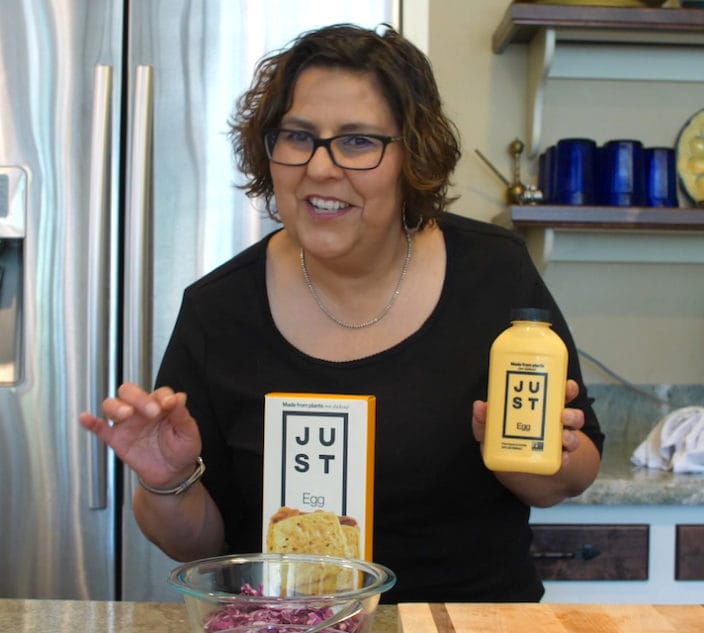 Photo: Getty
Photo: Getty Working through these issues is worth it, though. And for children with food allergies, the support of others is integral for them to thrive.
So even if your close friends and family aren’t putting their thoughts into words yet, here are some things they may be thinking. Taking a peek behind the curtain will help you to deal with them in a way that preserves relationships while protecting your child. The situations below can be challenging, but each one is an opportunity to widen the community of those who can safely care for your child.
1. They won’t know what to do in an emergency.
I have trained thousands of parents to recognize and treat anaphylaxis. Still, when I had to inject my own son, I felt a wave of uncertainty. If I could have these doubts, imagine how a 14-year-old babysitter would feel. Be proactive: Review how and when to use the auto-injector with caregivers at least twice a year.
2. They’re confused.
A relative once asked if my son Daniel could get ice cream at Dairy Queen. Really? I gently shared that due to his milk allergy, he could not. Well, at least she asked. Like learning a new language, understanding food allergies takes time and repetition.
3. They’ll let you do it all.
This is a recipe for resentment. If a spouse jumps in and dares to do things differently, we get nervous and take over. So he leans back and thinks, “She’s got this.” The problem is that we can’t do it all indefinitely.
Consider trying again with your spouse or other loved one. Start by reviewing your child’s emergency care plan and auto-injector instructions. Our children deserve the security of knowing there is more than one person who can keep them safe.
4. They’re upset that you don’t trust them.
There is no rule book that can tell us whether a particular person is capable of caring for our children. I learned this lesson the hard way with a neighbor who had all of the right answers – but still left peanut candy around that my then 6-year-old decided to try. After our ER visit, I vowed to honor my intuition more often.
If your gut says a family member doesn’t quite “get it” yet, find ways for your child to spend time with this person when you’re around. Seeing everything involved in shopping, cooking and packing safe foods for your child can help others to realize how much there is to learn and do.
5. They worry a mistake will jeopardize the relationship.
For many children with allergies, it’s not if they’ll have another allergic reaction but when.
Each time my son has had a reaction, we’ve learned from it. For example, when he drank from my glass of cow’s milk even though he had his own glass of rice milk, we created assigned seats at our kitchen table to eliminate confusion.
When our attitude shows that we won’t tolerate even minor errors, we increase the odds that others, including our children, will hide mistakes from us. We need to forgive, use the teachable moments as lessons, and then move on.
6. They’re sad, too.
Family members also mourn the loss of spontaneity that is part of life with food allergies. They too had visions of different kinds of family dinners, and holiday celebrations. So if Grandma is upset because her peanut butter blossoms have been scratched from the holiday menu, look for a solution. For instance, put together ingredients for allergy-safe sugar cookies and show her how to bake them.
7. They wish you would stop saying: “She could die.”
They’ve already made mistakes, and you’re terrified. But words are powerful and people actually learn far better when they are calm. I’ve talked to grandparents who were heartbroken over a grandchild’s diagnosis. They’re already pretty flustered.
Instead of repeating worst-case scenarios, try setting loving but firm boundaries. For example, no food other than what you’ve set out. Then, allow them the wiggle room to indulge your children in other areas, such as a later bedtime or a new toy.
Like the telephone game, every individual you encounter will hear your message differently. Although some friends and family members may never end up becoming trusted caregivers, it’s worth it to continue to explore ways to educate about food allergy management. Your dedication could truly mean the difference between life and death.
Gina Clowes is a certified life coach and consultant; who helps parents and schools advocate for children with food allergies. She is the founder of AllergyMoms.com, a support community serving thousands.
See Allergic Living e-magazine previews here.
Read more from Gina Clowes:
7 Tips to Help You Let Go of Food Allergy Fears & Anxiety
Finding the Positive Side of Food Allergies
Ages and Stages of Food Allergy Management





